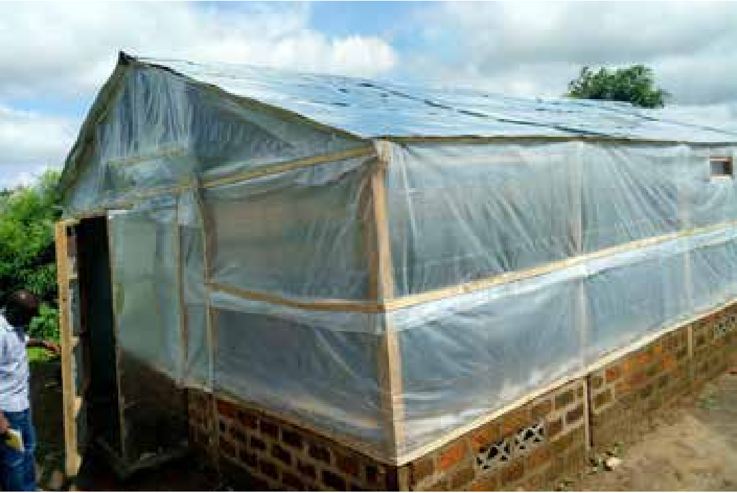
Description of the project: WEP has built a pilot solar dryer tent in Adogo village, Nigeria. The main objective of this innovative equipment if to improve the drying process of agricultural and sea products such as pepper, tomatoes, fish etc. through a healthier and controlled method. The pilot dryer responds to the specific needs of poor farmers – mostly women. The initiative promotes entrepreneurship and women’s economic empowerment, increases access to food and resources, and boosts commercial activities. It also improves hygiene and health, since the produce are dried in a controlled environment preventing contaminations by pests. It avoids spoilage of farm produce and has reduced the labour burden for women.
Climate impact: The use of the solar tent helps rural farmers adapt to climate impacts and increases their resilience through a more regular provision of food in the year. Protected by the tent, agricultural products can be dried even under unpredictable weather conditions occasioned by climate change. This equipment enables farmers to preserve vegetables, fruits and plants even under damp conditions. At least 4 tonnes of perishable agricultural products can be dried and stored at a time. The solar technology reduces the use of firewood to smoke fish, thus cutting CO2 emissions.
Gender impact: The solar dryer tent is a closed, secured equipment that saves a significant amount of time for women when drying farm produce, as they no longer need to guard the products and chase animals away. This created new economic opportunities, improved livelihoods, health, and safety. WEP has trained 30 women farmers on solar installation and entrepreneurship. Dried produce are sold with a good value added, generating additional income for families. The women have taken the responsibility of managing the project.
Scalability/replicability: WEP intends to replicate this pilot initiative in many rural communities in Nigeria and other African countries, based on performance tests and a construction model using locally sourced materials. Trainings will be organized on solar tent construction and the packaging of dried products as well as sales strategies. In line with the objectives of the national Economic Recovery and Growth Plan, WEP will collaborate with the government to develop the solar drying technology and reduce post-harvest wastage in several regions.